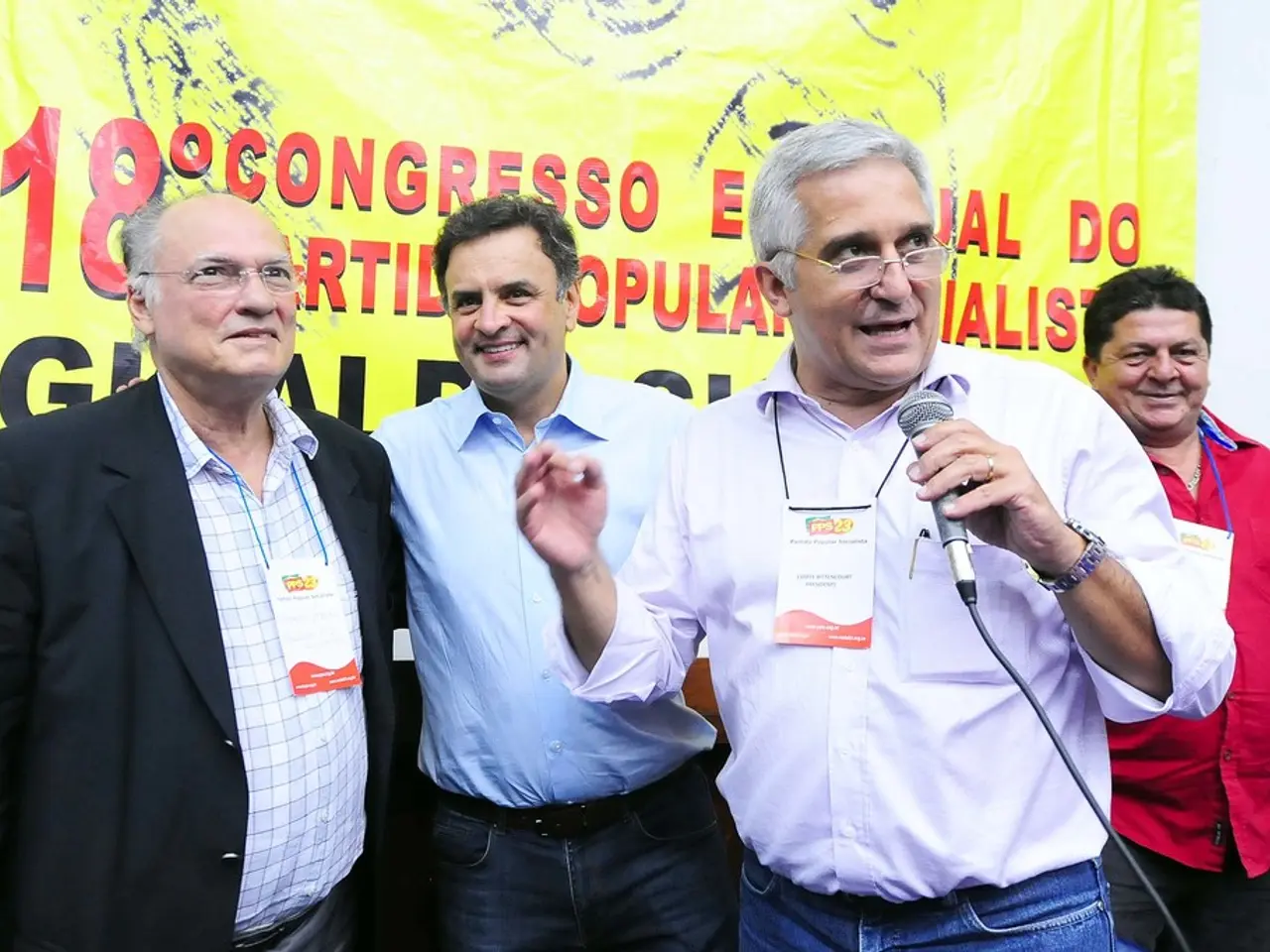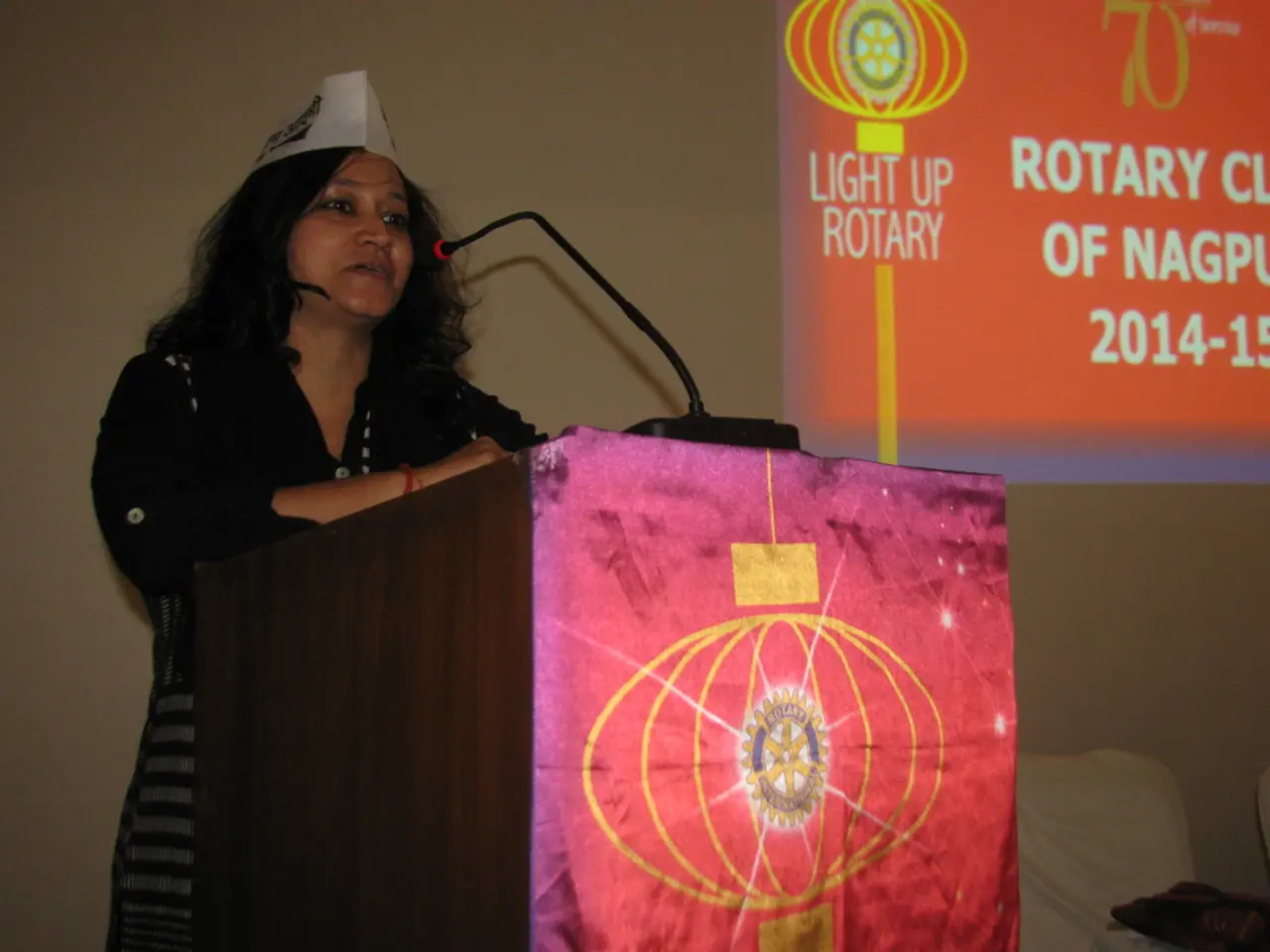Senate postpones August break, with Trump urging for additional confirmations
The Senate is gearing up for a potential overhaul of its rules in September, as Republicans aim to make it easier to swiftly approve President Donald Trump's nominations. The current standoff over nominations marks the latest chapter in an escalating Senate fight over confirmations in the last two decades.
Senate Majority Leader John Thune has been vocal about the Democrats' delays, labelling them as a "historic level of obstruction." In a bid to push through confirmations, Thune has announced plans to keep the Senate in session over the weekend to hold confirmation votes.
However, confirming all nominations would take more than a month, even if the Senate stays in session. This prolonged process has led to public calls from Trump for his nominees not to be forced to wait.
The Senate's yearly August recess has been delayed due to the stalemate over the confirmation pace. Trump has posted on social media that the Senate must stay in session until the entire Executive Calendar is clear. Despite this, Trump has not yet expressed support for any bipartisan deal.
The standoff has seen both parties employing stalling tactics to delay confirmations that were once quick, bipartisan, and routine. Democrats have blocked more nominees than usual this year and show little signs of giving in, even though they too are eager to skip town.
Trump has not only criticised Senate Judiciary Committee Chairman Chuck Grassley for working with home state Democrats on some judicial confirmations but has also taken aim at Missouri Sen. Josh Hawley for working with Democrats on a stock trading ban for lawmakers.
Democrats have slowed the confirmation process by forcing procedural votes on Trump's picks. Senators in both parties are eager to leave Washington for their annual break, but negotiations between Democrats and Thune to speed up consideration of nominees are ongoing, with no agreement reached yet.
In 2013, Democrats changed Senate rules for lower court judicial nominees to remove the 60-vote threshold for confirmations. If Senate Republicans follow suit, they could potentially lower the threshold for executive nominees as well. However, the exact details of these measures have not been specified publicly.
The stalemate significantly affected the Senate's August recess in 2025, delaying the start of the recess and necessitating a last-minute agreement to quickly vote on a few final civilian nominees, rather than clearing the entire backlog. Senate Republicans, with permission from President Trump, began their August recess on August 2 after agreeing to vote on about seven final nominees without debate but did not confirm more than 100 pending nominees, leaving a large portion of vacancies unresolved before the recess.
To avoid a similar situation in the future, Senate Republicans have discussed changing Senate rules upon their return in September 2025 to speed up the confirmation process. This indicates consideration of procedural reforms aimed at reducing the confirmation bottleneck and expediting votes on executive nominees.
[1] "Senate Republicans Discuss Rule Changes to Expedite Nominations," The Hill, [date] [2] "Senate Delays August Recess Due to Confirmation Stalemate," Politico, [date] [3] "Trump Applies Pressure on Senate Leaders to Control Confirmation Schedule," CNN, [date]
- The standoff over nominations in the Senate has led to a prolonged process, causing general news to feature stories about politics and policy-and-legislation, including the potential overhaul of rules to expedite confirmations.
- The stalemate has resulted in migration of public opinion towards questioning the efficiency of the confirmation process, with some pointing towards the influence of war-and-conflicts and business interests in politics.
- Job vacancies caused by the slow confirmation process could potentially impact various sectors, including the judiciary, executive offices, and the general workforce, as the Senate remains deadlocked.
- To address this issue, Seattleites and citizens across the nation are following developments in policy-and-legislation, keeping a close eye on the Senate's actions and responses, hoping for a resolution that will bring back the previous matter-of-fact rhythm of quick, bipartisan, and routine confirmations.








